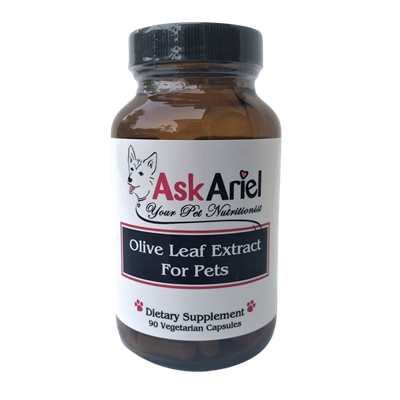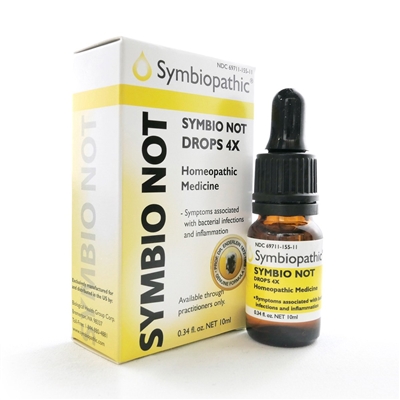Home Remedies For Dog Ear Infections
Is your dog scratching his ears and shaking his head? Are your dog's ears red and inflamed, filled with dark or green discharge? Dog ear infections can be so frustrating as they frequently return as soon as your pup finishes a course of antibiotics. A holistic approach combining a low carbohydrate, novel protein diet with home remedies for dog ear infections can be a transformative solution for you and your pup.
 Why Your Dog's Ears Matter
Dogs rely heavily on their acute sense of hearing to navigate the world. Hence, the health of their ears directly impacts their quality of life. Unfortunately, many pet owners only notice ear problems when they become visible, neglecting the fact that infections can manifest deep within the ear canal. Regular attention to your dog's ears can help catch potential issues early on.
Recognizing Dog Ear Infection Symptoms
Understanding the signs and symptoms of dog ear infections is the first step in providing proper care. Scratching, a head tilt, head shaking, redness, swelling, and a foul dog ear smell are some of the most common symptoms of dog ear infections. Healthy ears look fairly clean inside, but a black, brown or yellow ear discharge or scabbing at the ear opening signal a problem. Some dogs may walk in circles, experience hearing loss or show balance issues. It is important to note that some dogs may show little or no outward symptoms. Regularly check your dog's ears and consult with your veterinarian if any unusual behavior is observed.
Diagnosis Of A Canine Ear Infection
Accurate diagnosis is crucial for effective treatment. Only some of the symptoms may be visible to the human eye. Veterinarians can use tools such as an otoscope, which provides magnification and light, to examine your dog's ear canal thoroughly and identify the specific type of infection. With the otoscope, your vet can also can see if there is any damage to the eardrum.
In the video below, a veterinarian is using an otoscope to examine a dog ear infection with yellow pus.
Causes of Ear Infections In Dogs

- Bacterial Infections: A dog ear infection with yellow pus may indicate a bacterial infection. Bacteria such as Staphylococcus or Pseudomonas can overgrow in a dog's ear canal, leading to infections, often triggered by moisture or underlying skin conditions.
- Yeast Infections: Brown discharge in a dog's ear is often associated with an overgrowth of yeast, particularly Malassezia, and may result from factors like allergies, an excess of carbohydrates in the diet, hormonal imbalances, or excessive moisture.
- Parasites: Ear mites, ticks, or fleas can infest a dog's ears, causing dog itchy ears, irritation, and inflammation that may develop into infections if left untreated.
- Foreign Objects: Foreign materials like grass, foxtails, bugs or debris can get collect in a dog ear canal, creating a conducive environment for bacterial or fungal growth.
- Allergies: Dogs prone to allergies, whether food-related or environmental, may develop ear infections as a secondary condition due to increased inflammation and wax production in the ear canal.
- Anatomy: Dog ear types can influence susceptibility to ear infections. Dogs with floppy ears, such as Cocker Spaniels or Basset Hounds, are more prone to ear infections as their ear structure can trap moisture and hinder proper air circulation.
- Excessive Moisture: Frequent swimming, bathing, or inadequate drying of ears after exposure to water can create a damp environment, promoting the growth of microorganisms and leading to infections.
- Autoimmune Disorders: Conditions affecting the immune system may compromise the dog's ability to fight off infections, making them more susceptible to ear-related issues.
- Endocrine Disorders: Hormonal imbalances, such as hypothyroidism, can contribute to changes in skin condition, making the ears more prone to infections.
- Poor Ear Hygiene: Neglecting routine cleaning of a dog's ears may result in the accumulation of dirt, wax, and debris, providing an ideal breeding ground for bacteria and fungi.
Types of Ear Infections In Dogs
There are three kinds of dog ear infections:
- Otitis externa: inflammation of the outer ear and ear canal, most common
- Otitis media: inflammation of the middle ear, generally the result of bacteria spreading from the external ear canal, can also be cause by a foreign body (i.e. piece of grass)
- Otitis interna: inflammation of the inner ear, can lead to rupture of the eardrum; Spaniels and Hound breeds are more commonly affected
Conventional Treatment For Ear Infections In Dogs
Traditional treatments for dog ear infections often involve prescribed medications such as antibiotics or antifungals. For chronic ear infections or dogs that are difficult to treat at home, your veterinarian also may suggest “ear packing”. BNT ear packing is a wax based medication with antibiotics, antifungals, and anti-inflammatories. It is placed in the dog ear canal and continuously treats the infection for up to two weeks.
Natural Remedies For Dog Ear Infections
Along with conventional prescription medications, you can help prevent long-term chronic ear infections using a holistic approach. Dog ear infection supplements can help to support your dog's immune system and ward off chronic ear infections. If you know your pet is susceptible to ear infections, then it is a good idea to utilize these home remedies for ear infections in dogs routinely to prevent a flare-up. Many ear infections occur when dogs have been on repeated doses of antibiotics and the friendly bacteria is destroyed, making the dog susceptible to getting a repeat ear infection.

K9 Yeast Defense + Power Probiotic - K9 Yeast Defense rebalances your dog's immune system and is an effective supplement to prevent ear infections in dogs. K9 Yeast Defense needs to be combined with a powerful and effective probiotic. Do probiotics help dogs with ear infections? Probiotics promote the growth of friendly bacteria which can help strengthen your dog's immune system to fight off the yeast. This also helps avoid the risk of your pet developing a bacterial infection while you are killing off the yeast.

Olive Leaf Extract For Pets - This supplement is highly effective in treating many kinds of bacteria and fungus, specifically Candida albicans, one of the most common causes of dog ear infections. Olive Leaf Extract is a classic dog ear infecton home remedy as it helps to strengthen your dog's immune response. Olive Leaf Extract for Pets’ active ingredient, oleuropein, helps fight against pathogens while causing no harm to the friendly bacteria in your dog's gut.

NOT Drops - Not Drops and capsules act as a natural antibiotic, reducing redness and inflammation. They help control bacteria overgrowth and work well in combination with K9 Yeast and Power Probiotic. NOT Drops work to boost the immune system from the inside out.
What To Feed A Dog With Ear Infections
When considering how to treat a dog ear infecton naturally, diet is a foremost concern. Dogs suffering from chronic ear infections often have underlying issues related to allergies and yeast overgrowth. Choosing a hypoallergenic, low-carbohydrate diet can help manage their condition. Many commercial dog foods and treats contain high levels of starchy carbohydrates, sugars, and grains, which can contribute to chronic ear infections. Carbohydrates, including soy, corn, potatoes, wheat, peas, and rice, break down into sugars during digestion, providing an ideal environment for the growth of harmful bacteria and yeast. Even high-quality grain-free dry kibble, while seemingly beneficial, remains rich in carbohydrates and fillers, contributing to elevated sugar levels in a dog's system.
To address these issues, pet owners are encouraged to explore frozen low-carbohydrate raw novel-protein diets as an optimal choice for dogs with chronic ear infections. This type of diet minimizes exposure to potential allergens such as chicken or beef while significantly reducing carbohydrate intake. Avoiding starchy vegetables like sweet potatoes and chickpeas, as well as steering clear of sweets (honey, molasses, corn syrup) and breads, is essential in managing yeast infections. Including green vegetables like zucchini or green beans in a dog's diet is beneficial as these vegetables provide essential prebiotic fibers. These fibers support gut health, thereby contributing to the overall well-being of the dog's immune system.
When ordering supplements, please be sure to include the food and treats you are feeding your dog, along with any health issues, directly on the order form at checkout. We will include FREE diet tips for dogs with chronic ear infections on the packing slip that comes with your order.
|
|
|